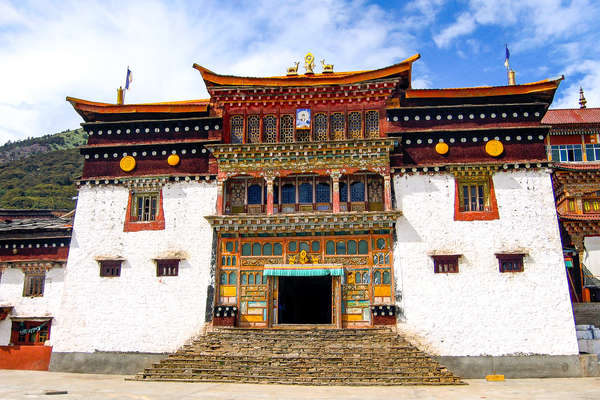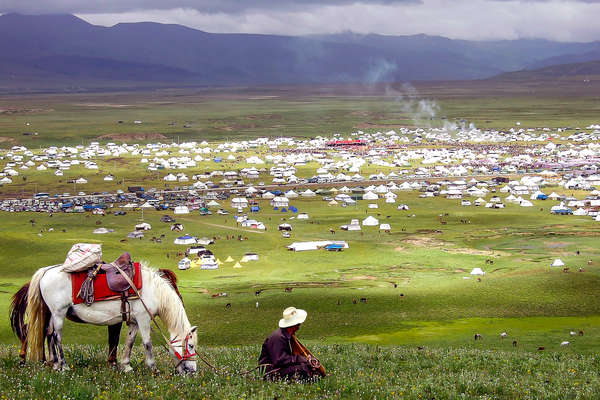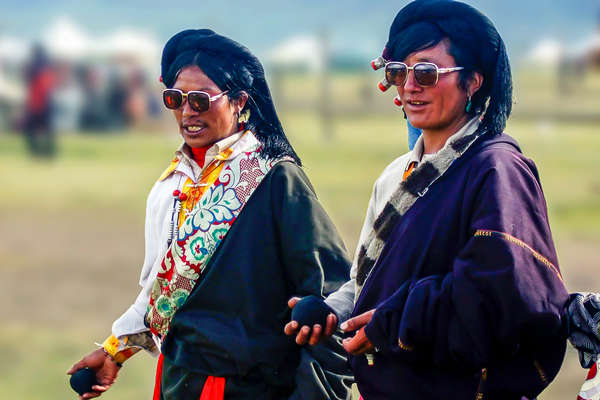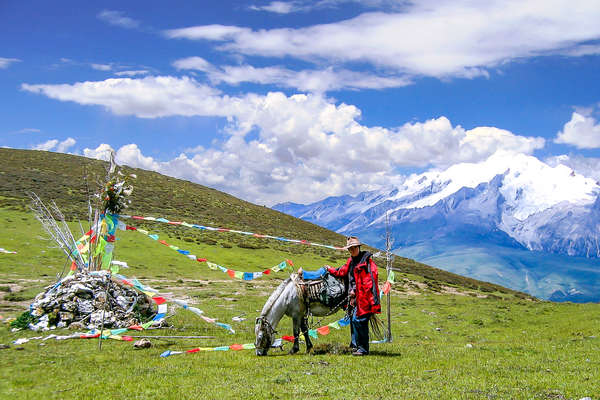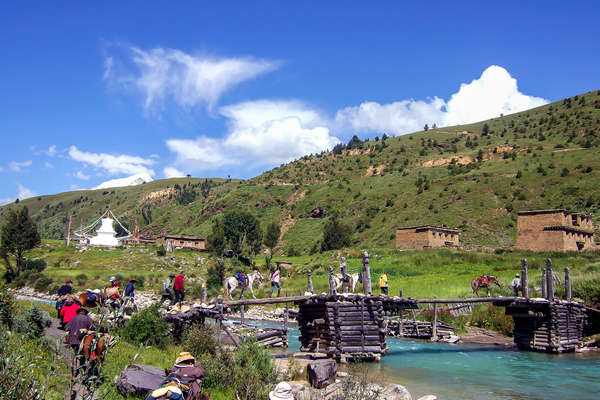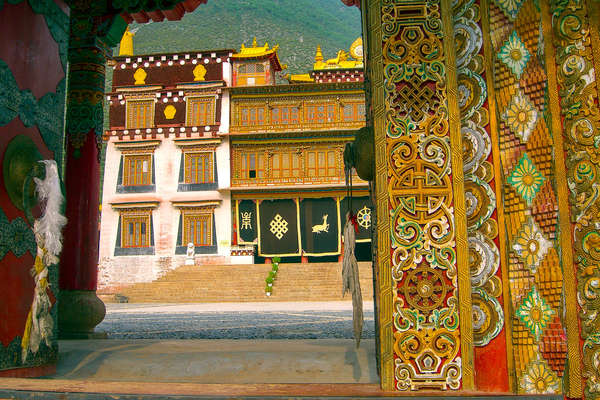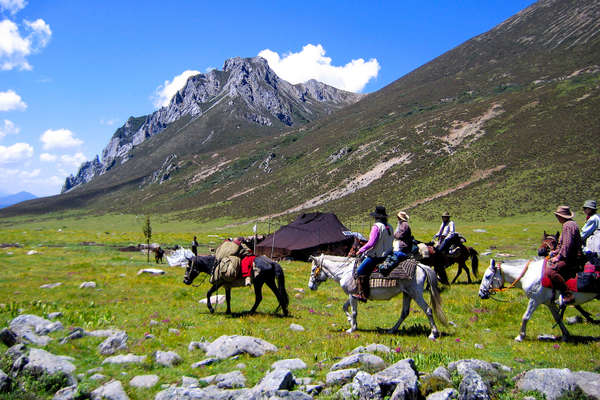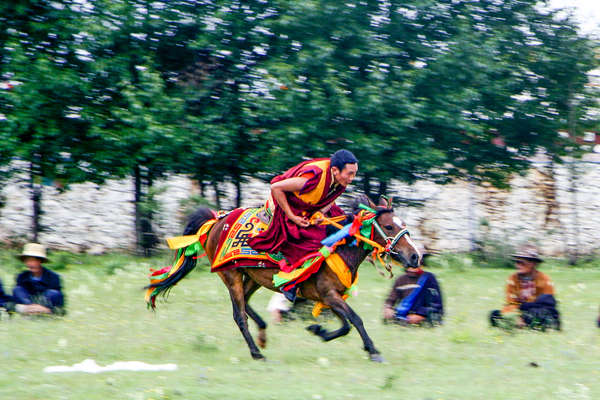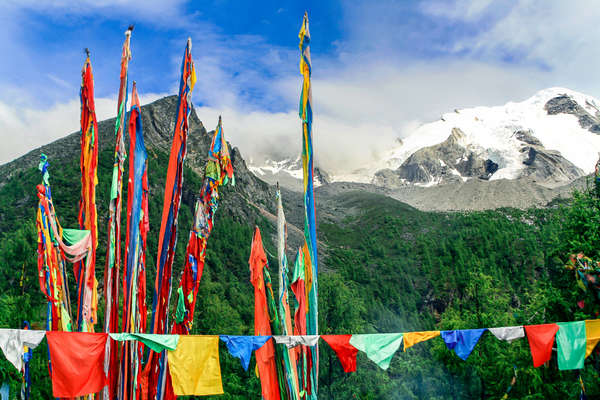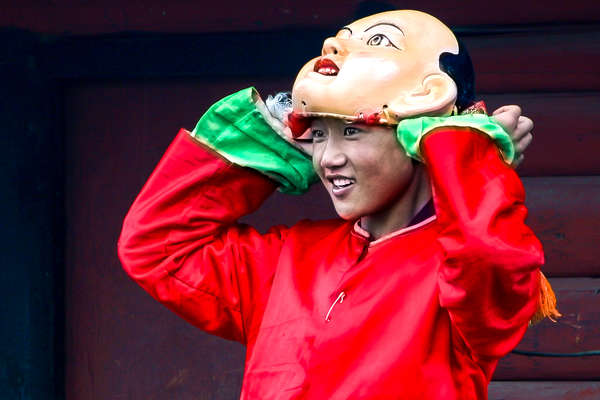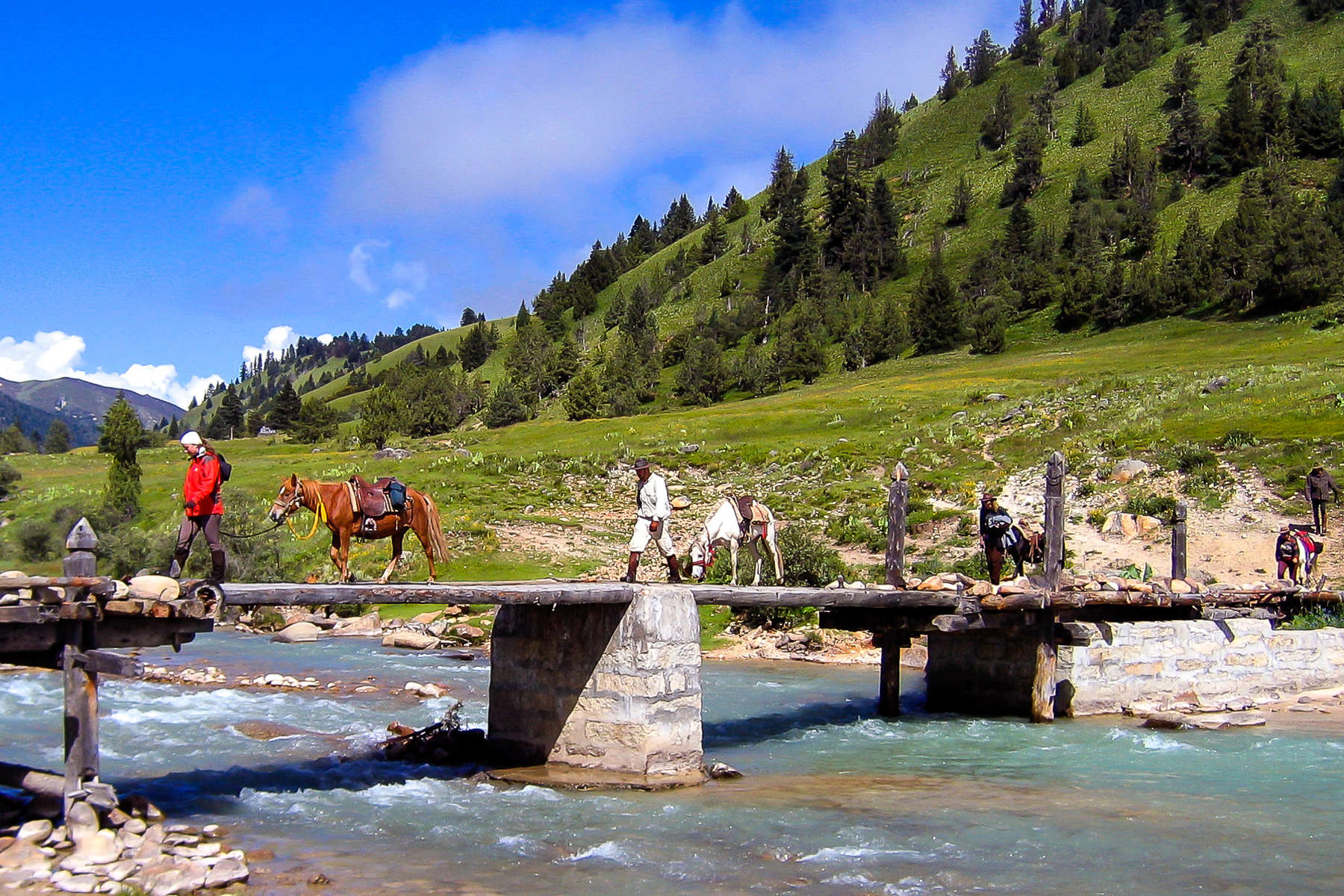
From the horse’s mouth
Itinerary
Highlights
- Complete immersion in local culture as we work directly with Tibetans in the Tagong valley
- Spend two nights with a family of nomadic herders in their camp
- A variety of accommodation: camping, nomad camps, Buddhist monastery, mountain retreat and guesthouse
Dates & prices
Price details
- International flights are not included but can be booked upon request.
- Rates are per person, based on two riders sharing a twin room or tent, and shared communal rooms in guesthouses.
- Groups are composed of 4 - 8 guests plus guides.
- The ride can also be booked for 3 riders with a small group supplement of $660 / €610 / £510 per person and for two people with a supplement of $925 / €855 / £715 per person. Once the group has reached 4 people, we will remove this supplement from your invoice and refund you if you have already paid it.
- There is a single supplement of $1,025 / €950 / £790 if we are unable to find a sharer for you.
- Rider weight limit is 85 kg. Heavier riders please contact us.
- A visa is required to enter China and is your responsibility.
Please Note
The itinerary may be modified at anytime for security reasons, meteorological or events beyond our control such as blocked roads, rivers in flood, drought, strikes and local holidays. Equus Journeys, our local partners and their local guides will always strive to find the best solution and will alter the itinerary as needed.
The names of the hotels and accommodation are given for information only and depending on availability, they may be modified without notice and replaced by another of a similar standard.
Price includes
Support Team
Logistics
1 cook and a team of Tibetan horsemen
Team of yaks for the transport of luggage
Inland transport
Airport transfers
Accommodation
Local standard 4-star hotel room in Chengdu (double/twin room)
Guesthouse accommodation - sharing a room with 2-5 people
Meals
Extra equipment
Fees for activities included in the programme
Price doesn't include
Meals
Transport
Extras
Extras
Insurance
Optional
Accommodation
Equestrian info
Horses
Guide & local team
Minimum riding ability
Minimum riding ability
Rider weight limit is 85 kg. Heavier riders please contact us.
Pace
Tacking ability and participation
Trip conditions and Requested experience
This ride takes place in a mountainous environment between 3,800m and 4,800m. All nights are spent at an altitude of 4,000m or lower. The altitude is increased gradually to help you acclimatise but you must respect the advice of your guide. You should speak to your doctor before joining the trip particularly if you have any medical conditions relating to your heart, blood pressure or respiratory system. You should prepare for the holiday by increasing your endurance training - fast walking, jogging, cycling, swimming etc.
Previous experience of adventurous travel is recommended.
Please note access to medical facilities is limited and helicopter evacuation is not possible in the mountains - in certain cases evacuation may be by motorcycle and horseback until you can reach an ambulance.
Visiting a new country offers the opportunity to meet other cultures with different mentalities, therefore it is important to accept these differences and respect the local way of life.
Equestrian equipment
We also recommend taking some leather laces so you can tie your coat behind your saddle.
We recommend our riders to wear a helmet to the correct standard and you should bring your own to ensure a proper fit
Travel info
Comfort
In Chengdu you will be staying in a local hotel.
Meals
During the trail:
Breakfast: coffee, tea, powdered milk, bread, jam, eggs or Chinese food (noodles, fried rice etc)
Lunch: Light picnic (bread, sausage, yoghurt)
Dinner: Rice, vegetables, meat - fragrant Chinese and Tibetan cuisine
In towns and villages you will eat in local restaurants.
Water:
Take care not to drink water from unknown sources. Mineral water is provided at every meal whilst on the trail, or you can refill your bottles using boiled water (or bring water purification tablets). In restaurants it might be possible to get beer or fizzy drinks.
Climate
Tips
Packing list
The maximum weight limit on this ride is 17kg per person due to the fact that we are using pack animals. We recommend packing in waterproof packing cubes or duffel bags.
Head
- Equus Journeys strongly recommend that you wear a riding helmet and that you take your own to ensure a correct fit. There are many lightweight options available nowadays
- Sunhat for when not riding
- Sunglasses - with a cord attached so they don't fly off when riding
- Buff or bandana
- Warm hat for cold nights when camping
Upper body
- Thermals (long or short sleeved)
- Long sleeved shirts provide protection from the sun and are an extra layer
- T-shirts
- Lightweight fleece or jumper
- Warm fleece or jumper (and a spare in case one gets wet)
- Warm and waterproof jacket - it can rain at any time of year and the evenings can be particularly cold
Legs
- Lightweight, comfortable riding trousers or jodhpurs - we recommend riding in them at home before taking them on holiday to ensure they don't rub
- Thermals
- Casual trousers for the evenings, such as jeans or tracksuit bottoms
- Waterproof over trousers
- Lightweight, comfortable trousers for non-riding days
Hands and Feet
- Comfortable riding boots. We recommend short boots with half chaps but you may wish to take long chaps as an extra layer against inclement weather. We don't recommend taking your favourite long leather boots in case they get damaged
- Waterproof shoes/boots can be useful for abundant dew in the mornings or when it rains
- Trainers or equivalent light shoes for moving around the camp in the evenings
- Several pairs of warm, thick socks
- Gloves - your hands are particularly exposed to the sun, cold or rain whilst riding. Waterproof gloves can be particularly useful
Nightwear
- Sleeping bag. You need at least a comfort factor down to minus 5 celsius, but would recommend at least minus 8 or 10 celsius.
- Sleeping bag liner - silk, cotton or fleece - adds an extra layer
- Self-inflating mattress such as a Thermarest (a thin pad is provided but an additional layer may be welcome)
- Pyjamas or tracksuits or thermals for sleeping in
Other useful items
- Swimsuit - for swimming/bathing in rivers
- Towels - lightweight camping ones will both dry and pack more easily
- Small backpack for accessing items required during the day (carried by support crew)
- Camera and high capacity memory card. Spare battery
- Bumbag for carrying your camera and small items whilst riding
- Headtorch or small torch for moving around camp at night - bring spare batteries and bulbs
- Water bottle (2 litres or 2 x 1 litre)
- Wet Wipes or equivalent (for when washing facilities aren't available)
- Toilet paper and a lighter to burn it with
- Small plastic bags for rubbish
- Ear plugs (for light sleepers)
In your hold luggage
- Any liquids, such as shampoo, moisturiser, deodorant unless they are less than 100ml and all bottles can fit in a small, clear, plastic ziplock bag. We recommend biodegradable washing products where possible.
- Swiss army knife (or equivalent)
In your hand luggage
- Any valuables, such as your camera, ipod, ipad etc.
- Your riding hat
Medical kit
- Sunscreen and lip balm - should be high factor
- Insect repellent, preferably containing deet
- Any medication you regularly take
- Blister plasters in case of any rubs
- Antiseptic cream, plasters, aspirin, anti-histamine, insect-bite salve etc...
- Spare prescription glasses/contact lenses
- Eye drops
- Imodium or similar anti-diarrhoea medication
- Re-hydration sachets
- Water purification tablets
- Antiseptic wipes
- Handwash gel
Our Recommendations
- Please don't take a hard sided suitcase. Your luggage should be soft sided with a capacity of 60-80 litres. We recommend taking a backpack or similar. The luggage limit on the ride is 15kg per person.
- Backpacks cannot be worn whilst riding. We recommend a small bumbag or a coat with pockets so that you can carry small items with you during the day (camera, sunscreen, lipbalm etc)
- We recommend travelling in your riding boots and carrying your hat and some riding clothes in your hand luggage - then if your luggage goes astray you are still able to ride!
- Tall riders may benefit from taking a pair of long stirrup leathers with them (the local stirrups are adjustable but are sometimes limited in length)
- We recommend taking a copy of your passport and insurance documents with you in case you lose your originals
- Please take your rubbish home with you. There are no recycling facilities in Tibet, so take your used batteries, aerosols etc back home and dispose of them appropriately. Try to leave excess packaging material at home before travelling
- You may wish to take some photographs or postcards of your home with you to show your hosts. You may also wish to take some crayons, colouring books etc for the children. Be careful not to take card games as these are frowned upon by the adults, who use them for gambling.
Sustainable tourism
- Travel light. It's a little known fact, but the lighter you pack, the better for the environment as heavy bags will produce higher emissions (when flying a plane or driving a car!).
- Reduce plastic waste. Take your favorite reusable bottle with you. Avoid single-use bags, cups, or straws.
- Preserve nature. Always take your rubbish with you during the ride and recycle them. Leave all the flowers or plants as you found them, and never get too close when observing wildlife. Make sure to use eco-friendly products such as body wash or laundry detergent (if camping) to protect both your skin and the environment.
- Choose your experiences carefully. Respect animal life by not participating in any activities that abuse wild animals (shows, elephant rides, etc.).
- Support local populations. Buy local handicrafts, be respectful of customs, and learn about the culture of local communities.
- Share! Raise awareness among your family and friends about sustainable tourism.
Did you know?
Did you know?
On this horseback riding trail in Tibet you may be lucky enough to hear the locals singing a folk song named after the city where you start your riding trail: Kangding Love Song.
This popular Chinese folk song was written in the 1930's in Kangding by a local musician named Li Yi-Ruo. He fell in love with a college classmate, but his family would not agree to the relationship as her surname was also Li. He abandoned his family and was only able to complete his education because of financial support from Miss Li's family.
The song was originally named "Horse riding high upon the mountain side" and Li Yi-Ruo taught it to the local people of Kangding, who loved it and named it the Horse Ride Song. In the mid 1940's a musical student took the song to his teacher who rearranged it for a famous musician, Jiang Dingxian and renamed it Kangding Love Song after it's place of origin. A popular singer, Yu Yixuan added the song to her repertoire and took it across the world.

